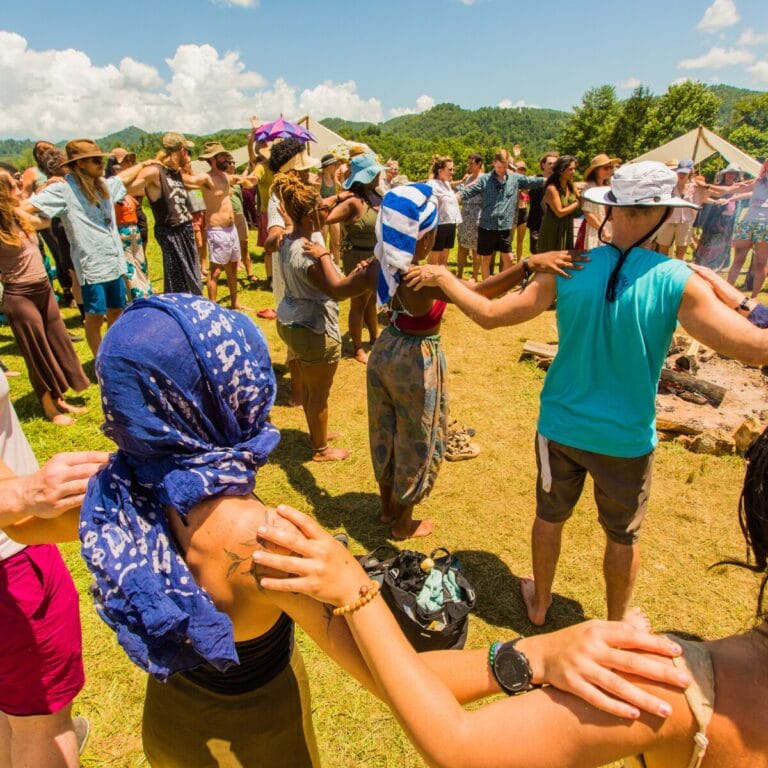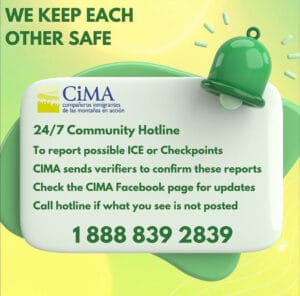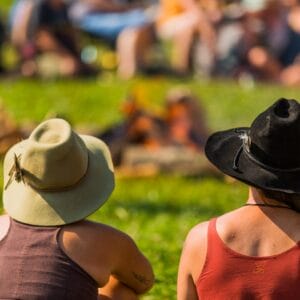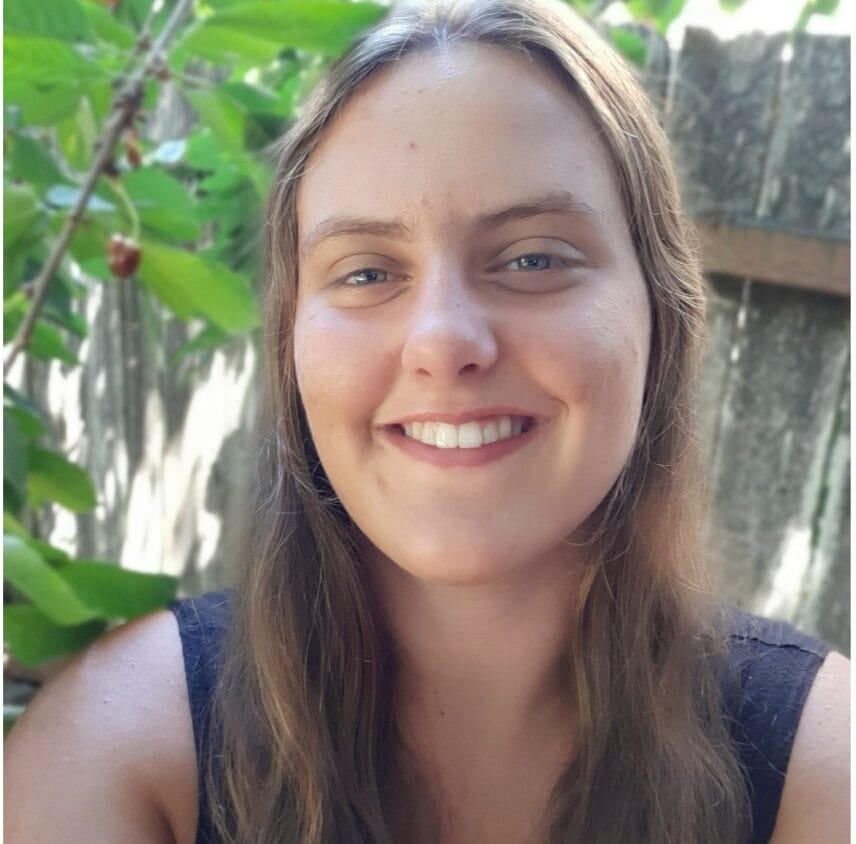“What does a distant war in the Middle East have to do with an earth-skills gathering in the Blue Ridge Mountains?” I asked Aya, Beirut-born activist and weaver of connection through sharing.
“Because learning to get along is a life skill,” she said. “Not killing each other is a life skill. Finding peace and harmony despite our differences is a primitive skill we humans need to learn.”
Aya first caught my attention at the morning circle when she announced a Levantine meal (which includes Palestinian, Syrian, Lebanese and Jordanian food) in the Neighborhood, concurrent with a Shabbat meal in another part of the gathering. “Everyone is invited to join us,” she had said, “and I give the first invitation to anyone here who identifies as pro-Israeli in the ongoing conflict, because at any gathering of this size there are sure to be people who support Israel. You will be welcome at our meal. And you should know that this is a difficult hand to extend, with the decades of injustice that have occurred.”
Later in the week, Aya and I sat eating lunch on a grassy hillside far, far from Beirut where U.S.–funded bombs had recently fallen in her parent’s neighborhood, which is also where she had lived most of her adult life.
“Earlier this week you went out of your way to invite pro-Israeli people to come and talk and share a meal with you,” I said. “Why?”
“We need to be talking,” she said. “We need to have more compassion towards one another. We need to find ways to address our differences rather than turning away. What happens here among us is very important. The more we can come together and not be afraid to discuss our differences, the more harmony we can weave into the bigger web of it all. People need to be aware that $4 billion of our U.S. tax dollars supported Israel each year before the war even began. Too many people don’t realize that we are paying for weapons to kill innocent people.”
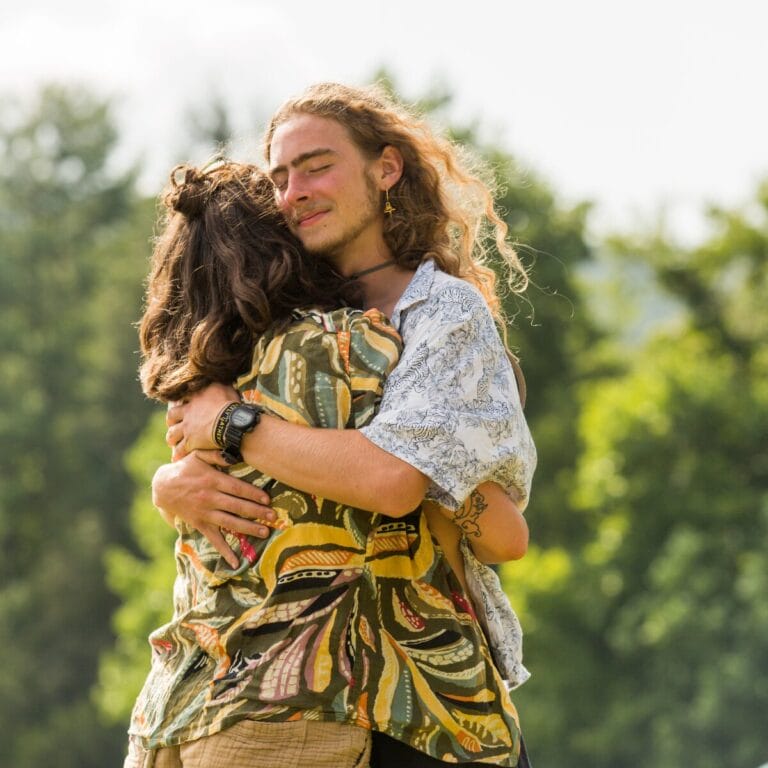
“You feel this very deeply,” I said. “Not only were you raised in Beirut but you lived there 15 years as an adult and your parents still live there.”
Aya’s eyes began to tear up. She took a moment to collect her emotions. “I am sick and tired of this war and what it’s doing to the world and its people. And yet it is also bringing people together. My beloved partner is of Jewish descent, a practicing Jew who does not support Israel’s oppression of the Palestinians. We have had a beautiful journey together. I believe that the best way for all of us to understand each other’s differences is to speak with each other and tell each other stories of our ancestry and our identity — to make the effort to understand each other rather than being filled with anger or hate. We need to learn more about each other’s families, our land and our history. That’s what we do at these gatherings in so many different ways. We create a sacred space where it’s safe to have these kinds of conversations about our differences. What we discover is that we are not so different after all. We are all human. The division is just an illusion.”
“Israel has been bombing Beirut since before you were born.” I said. “And yet you don’t hate anybody. What goes through your mind as you think of the perpetrators of this violence?”
“I actually see why they are doing what they are doing but that does not justify it whatsoever! It is atrocious. But I understand why people would join the Israeli army and why they would join Hamas. Is it justified? No. It’s not. But people who are deeply hurting inside hurt other people. Those who are killing innocent Palestinians and Lebanese are deeply wounded people. In fact, they need healing inside. They need to make a conscious decision to deal with the issues that are causing them to harm others.”

“What do you say to someone who believes supporting Israel in this war is the right thing to do?” I asked.
“The first thing I ask those people is what they think of Zionism,” Aya said. “Are they fascist? Do they believe in ethnic cleansing? Because in my opinion, Zionism is a fascist ideology. Zionism was designed for one race, one ideology, one creed, in one place. In Zionism, there is no room for diversity or tolerance. There is no room for anyone who does not support the state of Israel. Zionism is one of many ideologies and philosophies that do not come from a place of love. It comes from a place of fear. That is the essence of Zionism.”
“What do you say to people who claim that Israel is only defending itself in this war?”
“To kill over 55,000 people — most of them civilians — is not self-defense,” said Aya. “To starve 600,000 people is an atrocity. When a group of people are being killed consistently for a continuous period of time, that is called a genocide. It has happened in many places like Rwanda and Cambodia. When it happens in the name of supremacy or a fascist ideal like Zionism, it is called ethnic cleansing and it is not acceptable.”
“How can a nation like Israel — with U.S. and British weapons and funding — take away somebody’s land,” I asked, “force them onto a tiny strip of land, place them under siege for decades, bomb them continuously, tell them to go away and not give them anywhere to go? Aren’t they basically saying they wish these people didn’t exist?”
“I have the same question as you,” said Aya. “When the State of Israel was created on May 15, 1948, Zionists claimed that Israel was ‘a land without a people for a people without a land.’ But that was not true. Palestinians were living there. People had lived there for generations. My grandmother Salma and her family were among those who lived there. Nearly 400,000 Palestinians were violently driven from their homes in an ethnic cleansing known as the Nakba, and they have been under continuous occupation by Israel from 1948 until today. Zionism has nothing whatsoever to do with justice and human rights.”
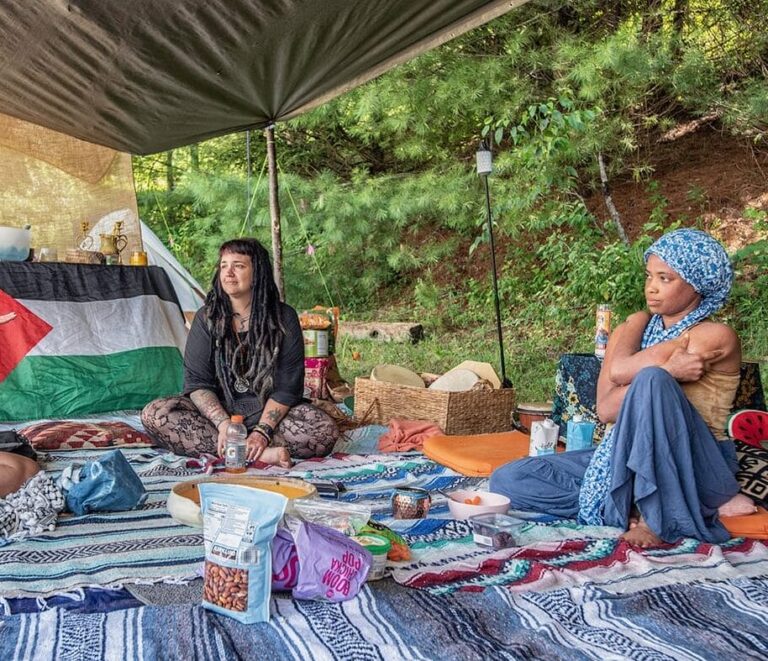
“And yet you have enough love for those you might otherwise call your enemies,” I said, “to extend warm hospitality to them and invite them to a wonderful meal in the Neighborhood!”
“I can find compassion for all people,” said Aya. “I love people because they are my fellow humans. People harm others because they have not dealt with their own wounds. They need to care for themselves first. When they don’t care for themselves, they act in violence toward others. I wish that those who were in the military, pushing the buttons for the bombs and flying planes, could find a safe place like Firefly where they can experience healing for their unresolved issues. And if I could invite anyone to come to Firefly and learn the things we are learning here, Trump and Netanyahu would be the first people I’d invite. Whether they would have any interest and accept the invitation is a whole other story.”
